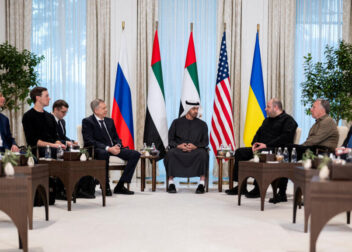Nobel Peace Prize 2025 Winners: Who Really Deserves the Honor Amid Escalating Global Conflicts?
Imagine a world where peace feels like a distant dream—tanks rolling through Ukrainian towns, airstrikes lighting up the Gaza sky, and civil wars tearing apart nations like Myanmar and Sudan. Yet, every year, the Nobel Peace Prize committee picks someone (or something) to celebrate as a beacon of hope. This year, in 2025, they chose Venezuelan opposition leader Maria Corina Machado. But in a year riddled with brutal conflicts, does this choice hit the mark? Or should the spotlight have gone to those knee-deep in resolving the world’s hottest flashpoints? Let’s dive in and unpack this, shall we?
The Big Reveal: Who Won the Nobel Peace Prize in 2025?
The Norwegian Nobel Committee announced on October 10, 2025, that Maria Corina Machado is the recipient of the Nobel Peace Prize. At 58, she’s been a thorn in the side of Venezuela’s authoritarian regime under Nicolas Maduro. Hiding out to avoid arrest, Machado has rallied millions for free elections and democratic reforms. The committee praised her “tireless work promoting democratic rights for the people of Venezuela and for her struggle to achieve a just and peaceful transition from dictatorship to democracy.”
It’s a powerful story, right? Picture this: a woman leading massive protests, facing bans from running for office, yet still inspiring a movement that claims victory in disputed elections. Her win feels like a nod to the everyday heroes battling oppression without firing a shot.
Why Maria Corina Machado? A Closer Look at Her Fight
Machado isn’t new to the scene—she’s been in Venezuelan politics for decades, founding parties and pushing for economic freedom. But her real shine came during the 2024 presidential election, where she backed a stand-in candidate who many believe won, only for Maduro to cling to power. Her approach? Non-violent resistance, international advocacy, and uniting opposition groups. In a country plagued by hyperinflation, migration crises, and human rights abuses, she’s become a symbol of peaceful change.
Reactions poured in quickly. Venezuelans in the U.S., especially in places like Doral, Florida, celebrated with tears and cheers, seeing it as validation for their homeland’s struggle. Former Latin American presidents hailed her as a democracy warrior, and even U.S. President Donald Trump chatted with her, with Machado expressing gratitude for his support in global peace efforts. But not everyone’s popping champagne—critics point to her support for Israel’s actions in Gaza and calls for foreign intervention in Venezuela, questioning if that aligns with true peace.
Global Conflicts in 2025: Where the World is Burning

According to experts, conflicts are getting more internationalized, involving 78 countries beyond their borders. It’s a messy web—think proxy wars, arms flows, and humanitarian nightmares. In this backdrop, awarding the prize for democracy in Venezuela feels… niche? Sure, authoritarianism fuels conflict, but with bombs falling elsewhere, some wonder if the committee missed the bigger picture.
Other Contenders: Who Else Deserved the Nobel Peace Prize 2025?
Before the announcement, speculation was wild. Bookies had odds on everyone from U.S. President Donald Trump (for his Gaza peace plan push) to Ukrainian President Volodymyr Zelensky, who’s been the face of resistance against invasion. Then there were groups like Sudan’s Emergency Response Rooms, providing aid in war zones, or Reporters Without Borders, fighting for press freedom amid censorship.
What about the International Criminal Court (ICC)? They’ve issued warrants for war crimes in Ukraine and Gaza, holding leaders accountable. Or Mahrang Baloch, advocating for Baloch rights in Pakistan amid disappearances and violence? Even climate activists were floated, linking environmental justice to peace. With 338 nominees—244 individuals and 94 organizations—the field was stacked.
Zelensky, for instance, has united the world against aggression, but maybe the committee avoided picking sides in active wars. Trump’s odds surged pre-announcement, but awarding a sitting president could’ve been too political. Hindsight’s 20/20, but these alternatives highlight how peace prizes often spark debate.
Wrapping It Up: Does the 2025 Choice Inspire Hope or Raise Questions?
Maria Corina Machado’s win is a win for democracy fighters everywhere, reminding us that peace starts with rights and fair governance. Yet, amid 2025’s global turmoil, it prompts a bigger question: Should the Nobel prioritize ending active wars over preventing future ones? Venezuela’s crisis is real, but with Gaza in flames and Ukraine under siege, maybe a nod to frontline peacemakers would’ve resonated more.
What do you think? Who would’ve been your pick for the Nobel Peace Prize 2025? Drop a comment below, share this post if it got you thinking, and let’s keep the conversation going. Peace isn’t just a prize—it’s something we all build together. Stay tuned for more on global stories that matter!



